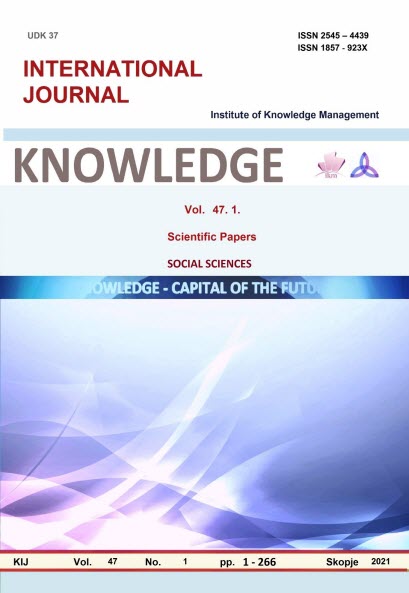PARALEL ANALYSIS OF THE INVESTMENT ACTIVITY ON THE CROATIAN AND THE BULGARIAN STOCK EXCHANGES IN CONDITIONS OF EXTRAORDINARY EPIDEMIOLOGICAL SITUATION
PARALEL ANALYSIS OF THE INVESTMENT ACTIVITY ON THE CROATIAN AND THE BULGARIAN STOCK EXCHANGES IN CONDITIONS OF EXTRAORDINARY EPIDEMIOLOGICAL SITUATION
Author(s): Simeon Simeonov, Anelia PenevaSubject(s): Business Economy / Management
Published by: Scientific Institute of Management and Knowledge
Keywords: https://doi.org/10.35120/kij4701107s
Summary/Abstract: Measures imposed in mid-March 2020 to halt the spread of Covid-19 limited and halted a number of businesses and raised serious questions and unexpected uncertainty throughout economic life. With this study we aim to assess the impact of the emergency situation on the investment activity of two selected Balkan stock exchange – The Croatian and The Bulgarian in the past year since its introduction. Subject of the study are the dynamics of stock exchange activity and market liquidity in parallel for the selected stock exchanges, which can be considered on the one hand with the price indicators and on the other with the natural measures. The input of our analysis are the main broad stock exchange indices for each of the two selected stock exchanges. For ZSE - CROBEX, whose sample includes 20 companies and for BSE – BGBX-40. As a basis for the stated analysis we set the price indicators - the stock exchange indices, after which we consistently consider the primary indicators and the analytical measures for the stock exchange activity. The main goal is to track the change in stock market activity, in parallel with the reaction of stock indices. As a starting point for changes in stock market activity, we take the previous year before the emergency situation and consider the trend in the coming quarters.Based on the applied different categories of specialized measures and the conducted empirical analysis, we can highlight the following more significant conclusions: The price measures - popular stock indices and market capitalization show a more tangible dependence on the looming uncertainty of the impending pandemic before the introduction of social and economic constraints. And this is more pronounced for the Croatian stock exchange. The natural indicators of the stock exchange activity - the stock exchange volume and the number of transactions show a weaker dependence on the restrictive measures. We explain this first with their generally much greater variability than that of price measures. Secondly, this can be interpreted as the absence of panic withdrawal from stock market activity, which is observed in times of crisis and is more typical of small and low-liquid capital markets. In conclusion, we can summarize that the investment activity on the capital markets of Croatia and Bulgaria is affected to a lesser extent than some sectors of the real economy. The main problem remains the humanitarian impact on the health of the affected population.
Journal: Knowledge - International Journal
- Issue Year: 47/2021
- Issue No: 1
- Page Range: 107-115
- Page Count: 9
- Language: English

